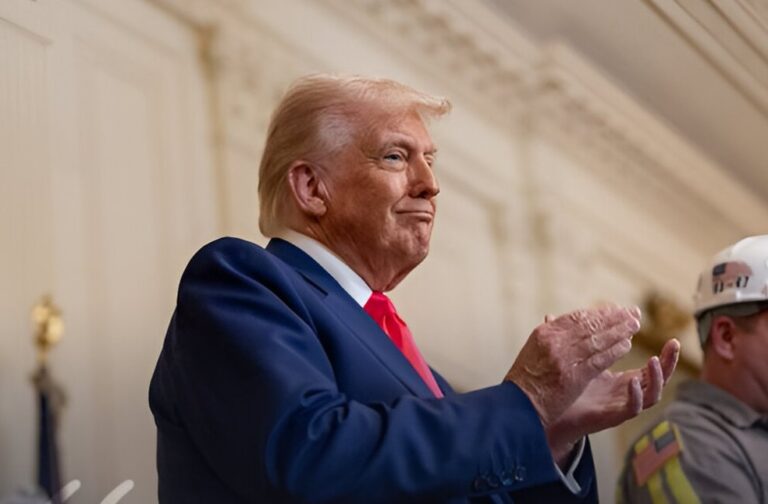United States: Donald Trump has declared the US will double tariffs on imported steel and aluminium, from 25 percent to 50 percent, in what he says is an aggressive move to revive domestic steel manufacturing and curb reliance on China.
Speaking at a rally in Pittsburgh, Pennsylvania, Trump said the raised tariffs would help secure jobs in the American steel sector and reignite growth in traditional industrial regions. He also announced a suggested $14 billion investment in the region’s steel production as part of a partnership between US Steel and Japan’s Nippon Steel.
Trump claimed the deal would bring a manufacturing resurgence to western Pennsylvania, though he admitted that he had yet to review or approve the final agreement. Trump stated that, “At 50 percent, they can no longer get over the fence. We are once again going to put Pennsylvania steel into the backbone of America, like never before.”
TRUMP PROTECTS AMERICAN STEEL 🇺🇸
“We are going to be imposing a 25% increase. We’re going to bring it from 25% to 50%—the tariffs on steel into the United States of America—which will even further secure the steel industry in the United States.” –President Donald J. Trump 🇺🇸 pic.twitter.com/ASaAjXxLDE
— The White House (@WhiteHouse) May 30, 2025
During the rally, Trump promised there would be ‘no layoffs and no outsourcing whatsoever,’ and pledged that every US steelworker would receive a $5,000 bonus.
JoJo Burgess, a local steelworker and mayor of nearby Washington, Pennsylvania, said that he was encouraged by the announcement. While not a Trump voter, Burgess said he welcomed measures that would level the playing field for American manufacturing.
Details of US Steel–Nippon deal remain unclear
Trump’s administration says it has confirmed a commitment from Japan’s Nippon Steel to invest $14 billion in American steel production over the next 14 months. According to US media reports, the coalition will preserve domestic ownership of US Steel, ensure US citizens are on the board, and prevent production cuts for a decade.
The US government would also hold veto power over potential cuts beyond that period. So far, neither US Steel nor Nippon Steel has confirmed the finalisation of the deal.
Tariff move comes with legal and global trade tensions
The tariff hike comes as Trump’s broader global trade strategy faces legal scrutiny. A court battle over the legality of some Trump-era tariffs is ongoing, though the steel and aluminium levies remain untouched by the litigation.

The decision has increased concerns among US allies and trading partners. China currently the world’s largest steel producer, was quick to respond. Beijing urged the US to ‘cease discriminatory restrictions,’ following Trump’s accusation that China had violated a tariff truce agreed to earlier this month in Geneva.
The tit-for-tat rhetoric between the two economic superpowers underscores the continuing volatility in global trade relations. Trump’s tariffs have previously triggered an international backlash and retaliatory measures, with many experts caution of their long-term economic consequences.
Nonetheless, Trump framed the move in national security terms. With the 2024 election looming and Pennsylvania a key battleground state, Trump’s renewed focus on steel signals his plan to campaign heavily on economic nationalism and American industrial revival.



